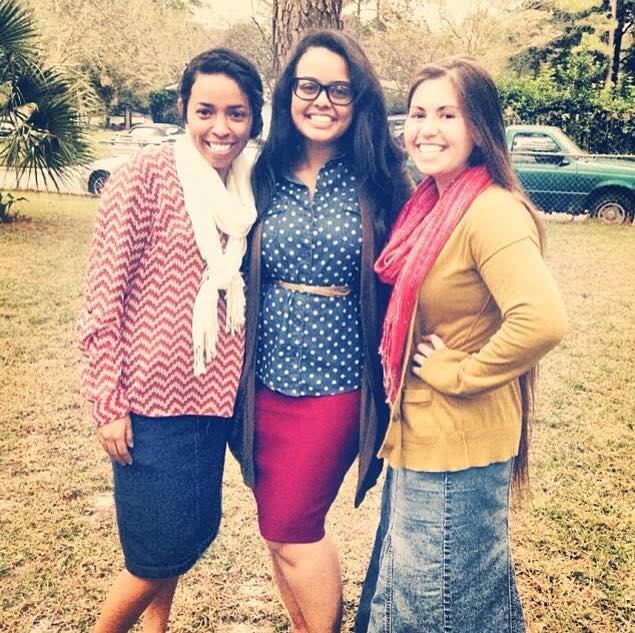The problem with American Muslims is not, necessarily, that they want to enforce the shari’ah in the U.S. Nor is it that Islam is an inherently violent religion or that Muslims in the U.S. are some sort of secret "fifth column" lurking in our midst. It is not even that Muslims are not vocal enough in denouncing acts of terror perpetrated in the name of their faith.
No, the problem with American Muslims is not their complicity in violence, their silence during crisis issues, or their religion in and of itself.
Instead the problem with, or rather for, American Muslims are the categories and conceptions, from within and without, that are forced upon them and within which they are required to forge their identity, and make sense of the world, according to their faith.
What are these categories and concepts? As Michael Muhamad Knight shared at the University of Florida last month, “American Islam is still fighting for its space and contesting false dichotomies of authenticity on all sides.” On one side, American Muslims are fighting to be considered truly “American” by the country they call home. On the other, they are struggling to be considered genuinely “Muslim” as they work out how to submit to God and country, knowing full well that they are shaped by the context in which they live.
Furthermore, Muslims are constantly barraged with questions that force them, as individuals or as minority communities, to answer for every word spoken or every deed done in the name of their faith. Their responses immediately categorize them as either violent or peaceable, moderate or extremist, fundamentalist or progressive when, in reality, what Islam is to the people who believe and practice it is shaped by their own personal experiences, the historical thrust of their faith, their current context, and an interplay and tension with the global umma (Muslim community). In a word, there are numerous Islams — structurally and interpersonally. Thus, it is unfair of outsiders (or insiders for that matter) to point the finger at Muslims and demand a response for where they stand on major crises and for their response to be gauged as authentic or not, representative or not, Muslim or not, moderate or not, American or not, violent or not, fundamentalist or not, etc.
Indeed, it also unfair of us to do so without concomitantly interrogating our own philosophy or religion’s history, words, deeds, and present posture on such issues.
Abdullah’i An-Naim, the Chandler Professor of Law at Emory University and an activist engaged in human rights issues, Islam, and cross-cultural crises spoke to this topic in a convincing manner last week at the University of Florida in conjunction with its Center for Global Islamic Studies.
An-Naim argued that “religious identity cannot be framed by fixed modalities” such as the ones noted above. Especially not in progressive, modern, societies such as the U.S.
Why? Contending that Islamicity is fluid, An-Naim posited that Muslims are constantly contesting and remolding what it means to be Muslim given their current context, geo-political trends, philosophical currents, and personal experiences. Unfortunately, he intimated, too often this debate, both internal and external, is overpowered by colonial discourses still shaped by former, or present, imperial powers (implicating the U.S. here and its continual involvement in the affairs of Muslim nations for its own ends).
An-Naim even critiqued post-colonial confabulations, saying that while this discourse was, and is, crucial to the individual and collective understanding of Muslims in the modern world, Muslims must move beyond allowing colonial powers (and their concepts and categories) to define who they are or who they could be.
Looping back to where we started, colonial forces continue to compel Muslims to justify and explain their viability as Muslims (or Americans, peaceable people, etc.) according to colonial discourse, not Muslim conceptualizations of what it means to be Muslim.
This is why al-Dawla al-Islamiyya (a.k.a. ISIS, ISIL, IS) is so compelling to many young Muslims seeking out an identity in a Westernized, globalized, and secularized world. Feeling isolated and de-centered, many Muslims see in ISIS an opportunity to establish Islamic sovereignty along Muslim lines and to buck colonial categories and constrictions.
In place of the Islamist, post-Islamist, Salafist, or jihadist post-colonial projects An-Naim proposes a “past-colonial” program that serves as an alternative Muslim vision that encourages tolerant public space and ample room for dissent, discussion, disbelief, and dialogue.
To do this, An-Naim argued, Muslims must come to terms with the post-colonial and legitimize and indigenize its concepts and imperatives in a vividly Muslim way so that they can uphold them as their own and not just as a matter of course or according to colonial philosophies.
Novelly, An-Naim suggested that the shari’ah is integral to this process of re-engaging Islamic agency in defining what it means to be Muslim in the modern world.
I ask you, in this moment, to suspend your preconceptions of the shari’ah and listen to An-Naim’s argumentation. From his perspective, the shari’ah is not a fixed institution, that it has no moment of foundation, nor is it internally or eternally consistent. Instead, he posits, the shari’ah is an evolving process of establishing Islamic law according to intergenerational consensus that seeks to make Islamic law immediately relevant to the formation of past-colonial institutions and spaces in countries where Muslims are either majorities or minorities. This means that, for An-Naim, the shari’ah cannot be enacted as a state law because, by its very nature, it denies formulaic notions in that it constantly needs to adapt to new contexts through constant consultation among numerous Muslim, and non-Muslim, constituencies.
Certainly, An-Naim’s proposals are revolutionary for Muslims and non-Muslims alike. We are not accustomed, or at times comfortable, with this type of talk.
The key here, to simplify his argument a bit, is Muslim agency in defining what it means to be Muslim and live in the modern world, as either a majority or minority.
Still, I inquired of him that night, what is the role of non-Muslims (like myself) and scholars, or interested parties, in changing the conversation and creating spaces for Muslim agencies in this discourse?
An-Naim suggested that Muslims and non-Muslims work hard at creating solidarities across religious boundaries and that non-Muslims stridently commit to not stripping Muslims of their right to decide what it means to be Muslim.
He had this great quote for those of us in “the ivory tower of academia” that is not only applicable in this discussion, but in many areas of public dialogue and activism. He said, “academics are not just academics; they are humans too. Scholarship can never be neutral. Our feigned neutrality is in itself a position in favor of maintaining the status quo" (Islamophobia, violence enacted in the name of Islam). He continued, "we should engage this topic from our humanity and take a stance conditioned by our positioning, advocating for a change of the status quo and the need to engage in a past-colonial discourse.”
In this solidarity and active dialouge, Muslims will need to deconstruct (and reconstruct) what it means to be Muslim and non-Muslims, especially those in the majority (in my case the U.S. as state power and Christianity as dominant religion) need to deconstruct, and reconstruct, what it means to be a hegemonic power and political force.
Practically, where can you (myself included) begin? First, inform yourself. Take a position to correct the problematic approach we have toward the Muslim world, which, I would argue, is as much part of our American, and global human, story. Although we may pray to a different God or come from a different historico-cultural context, we share in our humanity and this must be our starting point for understanding and dialogue — not ignorant judgement, essentializing or “othering” Muslims by their very nature.
Second, we must permit that Muslims may be changing the narrative in their own way and in a language and form we do not recognize as progressive. We should practice forbearance and trust that, from a Muslim point of view, that progress is happening. We cannot control it or coerce it according to our categories. While this may be a scary, or frustrating, proposition it is the most effective in the long run. Bombs, a barrage of insinuating questions, or anti-Muslim sentiment does not work. All it does it carve out space for Muslim post-colonial movements that set themselves up in the “clash of civilizations” (Islam v. the West) framework (e.g. ISIS, al-Qaeda, etc.).
Informing ourselves and creating this space will involve reading, learning, creating friendships with Muslims, taking part in interfaith peacemaking, and bearing with others in patience, love, and hope.
We cannot do nothing. While we may opine that Muslims continue to remain silent (even though they are not) or that the Qur’an says this or that (even though “texts are by themselves silent” [Michael Lambek] and require active interpretation) we cannot allow others’ inaction or failure justify our own.
Instead, we must do what we can to create a space, specifically within the U.S., where Muslims can freely, openly, and by their own agency, determine what it means to be an American Muslim in the contemporary scene.












